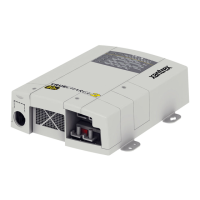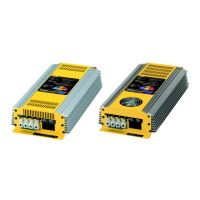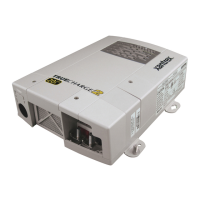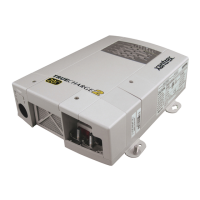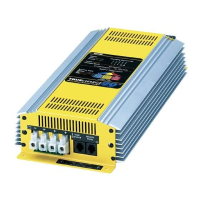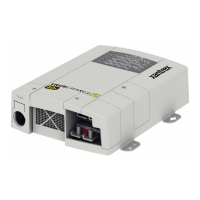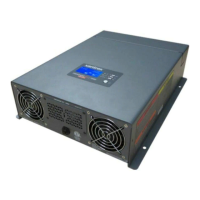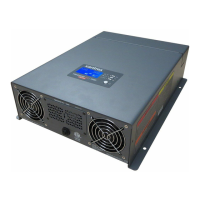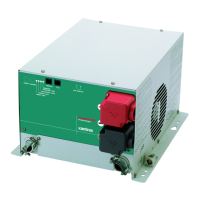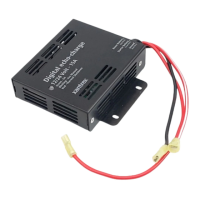Do you have a question about the Xantrex Trace DR Series and is the answer not in the manual?
Key safety precautions to follow during installation and maintenance of the inverter/charger.
Essential safety guidelines and precautions when working with batteries.
Details on unpacking the inverter, model identification, and numbering conventions.
Covers the UL/CSA certification standards for the inverter/charger.
Overview of the DR Series inverter/charger features and available optional accessories.
Guidance on location, mounting, ventilation, and required tools/materials for installation.
Instructions for AC/DC wiring, grounding, and conduit runs.
Details on connecting to panels, AC breakers, DC disconnects, and wire routing.
Critical information on DC wiring, battery cable sizing, and potential hazards.
Guidelines for DC disconnects and over-current protection, including fuse and breaker sizing.
Proper methods for connecting battery cables to the inverter terminals, including polarity warnings.
Guidance on battery bank sizing, types, and wiring configurations (series, parallel).
Diagrams and explanations for wiring batteries in series to achieve desired voltage levels.
Diagrams and explanations for wiring batteries in parallel to increase current capacity and run time.
Instructions for series-parallel battery wiring, which increases both voltage and run time.
Details on series-parallel configurations, including optional cross-tying for improved performance.
Requirements for using an AC generator as an input source, including voltage and current considerations.
Basic hookup information for connecting a generator, including bonding and grounding for non-utility use.
Steps for integrating utility and generator power via a transfer switch for seamless operation.
Instructions for AC wiring to sub-panels and connecting the AC input to the inverter.
Procedure for wiring the AC input to the inverter, emphasizing safety precautions and connections.
Steps for connecting the inverter's AC output to the sub-panel, ensuring proper neutral-ground bonding.
Diagram and steps for connecting the AC input to the main utility breaker box for single inverter installations.
Overview of series stacking two inverters for 240 VAC loads and power systems, requiring a DRI kit.
Overview of front panel components, including power switch, ports, indicators, and controls.
How to adjust the Search Mode Watts potentiometer to optimize energy saving and load detection.
Guidance on using the Battery Charger Rate potentiometer to set optimal charging current for the battery bank.
Explanation of Over Discharge Protection and AC Transfer Voltage settings and their functions.
How to set the Battery Capacity potentiometer for correct charge profiles and over-discharge protection.
Explanation of the front panel LED indicators, their colors, and meanings for system status.
Step-by-step guide for starting the inverter, including self-test, AC/DC power application, and initial checks.
Explanation of the 3-stage charging process, including Bulk, Absorption, Float, and Equalize modes.
Detailed steps for performing equalize charging on vented batteries, including safety precautions.
Guide to diagnosing and resolving common error conditions, possible causes, and solutions.
Information on selecting, sizing, and maintaining batteries for optimal performance.
Guidance on handling problematic loads and addressing multiwire branch circuit wiring issues.
Details on warranty coverage, exclusions, life support policy, and registration procedures.
| Dimensions | Varies by model |
|---|---|
| Output Voltage | 12 VDC or 24 VDC (depending on model) |
| Charging Algorithm | Multi-stage (Bulk, Absorption, Float) |
| Battery Types | Flooded, Gel, AGM |
| Operating Temperature | -20°C to 50°C |
| Weight | Varies by model, approximately 20-30 lbs |
